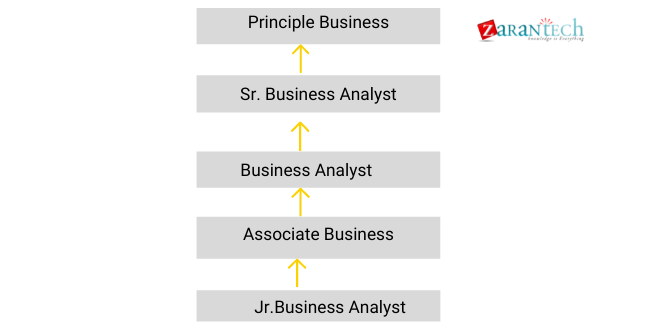Looking to Start BA Training? – Ask these Questions Beforehand
Category: Agile Business Analysis Posted:Apr 19, 2017 By: Serena Josh 1. What are the job prospects of a Business Analyst?
1. What are the job prospects of a Business Analyst?
Today, there is a huge demand for the professional individuals, who can identify the business needs, plan solutions and translate them into Information Technology (IT) specifications which enable enterprises to achieve the desired goals. They work in different areas such as Finance, Banking, Insurance, Telecoms, Utilities, Software services and so on. Business Analysts can switch between industries as they work on projects at a level of abstraction.
2. What are the growth/career prospects of a Business Analyst?
Business Analysts may overlap into roles such as project manager or consultant.

3. I am new to IT and I am looking out for something which does not involve coding. Can you suggest me something?
Sure, we highly encourage you to attend one of our live ‘Instructor-Led’ non-obligatory demo sessions. Demo session will give you great insights into what Business Analysis field is all about, the tools and techniques Business Analysts use on a day-to-day basis, career prospects and everything you would like to know regarding the Business Analysis field. You can also ask any questions or concerns you have to the instructor before making a decision.
4. I am a Tester/Developer, I am interested in Business Analyst role. Can I become a Business Analyst?
Yes, you can become a Business Analyst by spending good time in understanding and knowing Business Analyst roles, tasks, responsibilities and domains. With good preparation only, you can become a Business Analyst.
5. Do I need technical/programming skills to become a Business Analyst?
No.
6. How do I switch from Software Testing to Business Analyst role?
- Acquire knowledge and skill related to Business Analysis through a formal training or certification to validate your knowledge.
- Tester may actively participate in change management, impact analysis, solution scope activities and so on. Most part of the requirement elicitation is done at the client side at early stage.
- Speak to your Manager or Project Manager (only if you have good relationship) for the possible role change within the project.
- Speak to HR for career change options within the organization once you formally acquire your training/certification.
7. How can I become a certified Business Analyst?
To become a certified Business Analyst, follow few steps like:
Step 1: Try to understand BABOK, by joining a BOOK study group. Study groups can be informal, and focused mostly on reading and discussing the BABOK contents, or more formal, and focused on exam preparation.
Step 2: Applying for the CBAP requires 5 years of business analysis experience, as defined by the BABOK. Candidate must also demonstrate 900 hours of experience across at least 4 of the 6 knowledge areas.
Step 3: Verify whether CBAP is the right path.
Step 4: Earn appropriate professional development hours.
Step 5: Submit CBAP application.
Step 6: Schedule CBAP exam and prepare for it.
Step 7: Clear the exam and get certified.
8. Which is the best booming Domain to start with? What domain you suggest?
Financial is the most popular domain. Within ‘Financial’, there are various sub-domains such as retail banking, investment banking, secondary-mortgage, insurance, fixed income etc. While there are Business Analyst jobs in all domains, financial domain dominates the list, followed by healthcare, public sector, and logistics/supply chain.
9. I am planning to get online/distance/part time MBA, will it help me in taking up Business Analyst career?
No, few companies specifically states at the time of interview or job advertisement that, they need full time courses only.
10. I would like to know how Business Analysis works in the real world before I enrol to your training program?
We highly encourage you to attend one of our live ‘Instructor-Led’ non-obligatory demo sessions. Demo session will give you great insights into what Business analysis field is all about, the tools and techniques Business Analysts use on a day-to-day basis, career prospects and everything you would like to know regarding the Business analysis field. You can also ask any questions or concerns you have to the instructor before making a decision.
11. I want to change my career domain from a Test Analyst or a Project Manager to a Business Analyst?
Great! Since you have an experience in information technology area, it will be very easy for you to transit into a Business Analyst role. Most importantly, you can leverage on your past IT experience to transition your career into a Business Analyst.
12. I am into B.P.O /call centre/marketing job. Can I become Business Analyst?
Definitely, there are no prerequisites to become a Business Analyst, any past experience will be of great asset, which can leverage upon.
13. What is the ideal salary expectation, if I get a Business Analyst interview?
While an national average salary (in USA) is within the range of 80,000 to 125,000 USD gross per annum, the exact amount will depend on many factors such as job title, geographic location, business domain, number of years of experience, certifications earned, project funding, W2/form 1099, and the number of consulting firms involved.
14. What are the various services that you provide to assist candidates prepare for and secure a position as a Business Analyst?
In addition to providing quality training programs from certified trainers, our team of professionals will assist you in resume preparation, conducting mock interviews and marketing you to get your desired job and providing you with post-placement support.
15. I am in non-IT job, can I become Business Analyst?
Yes, but it may be bit difficult because you will have some irrelevant experience already and employers will prefer to have Business Analysts with relevant experience. You may need to work hard to give the best impression that, you can do justice to Business Analyst role.
Go through our Business Analysis Interview Questions to crack the Interviews.
16. I don’t have technical knowledge, I don’t have programming / coding experience / I do not understand technical things, Can I become Business Analyst?
It is an added advantage if you are aware of technical things but it is not mandatory to have technical hands-on. However, I recommend to know what are the technologies available in the market and what sort of technologies are better for a particular software. Usually this comes by experience.
As BA, you do usually interact with developers, you need to make best use of the time. As questions, know more about frameworks. You need to know – how code is written? But what technology, what framework? What are the other frameworks? Why this framework is applied? Why not other framework? Etc these questions will enable you to make techno-functional. Techno Functional people have more demand in the market.
I hope that by now you have had an overview of Business Analysis. Before you enroll in ZaranTech’s certification course on Agile Business Analysis do check out this demo video:





 99999999 (Toll Free)
99999999 (Toll Free)  +91 9999999
+91 9999999